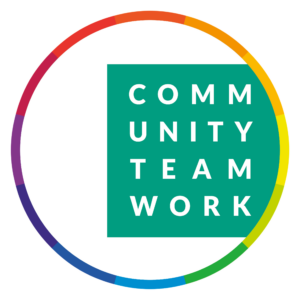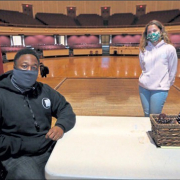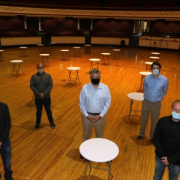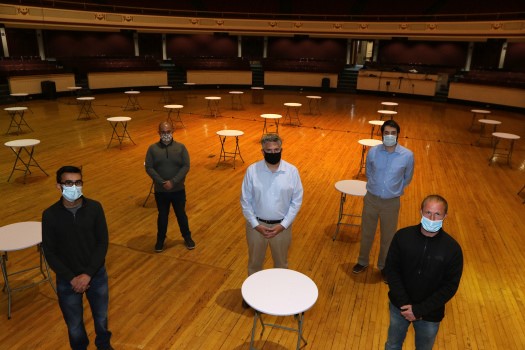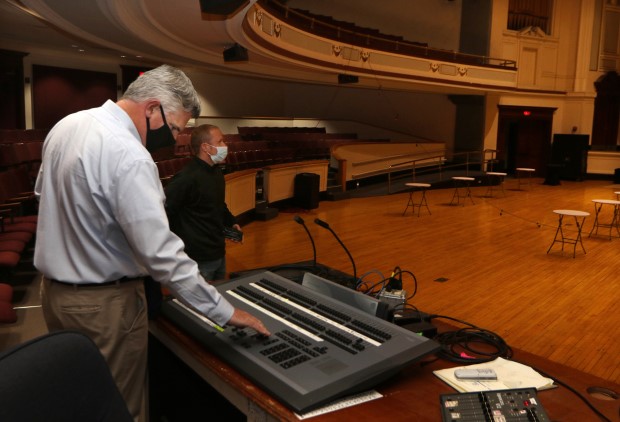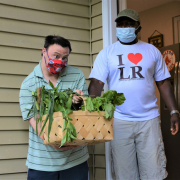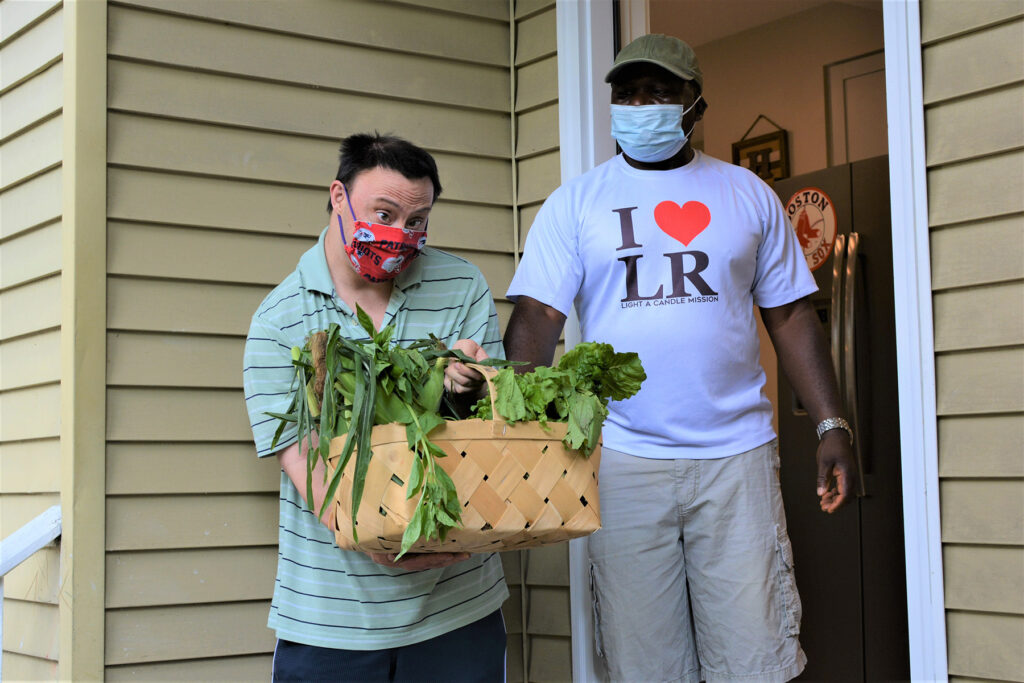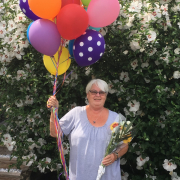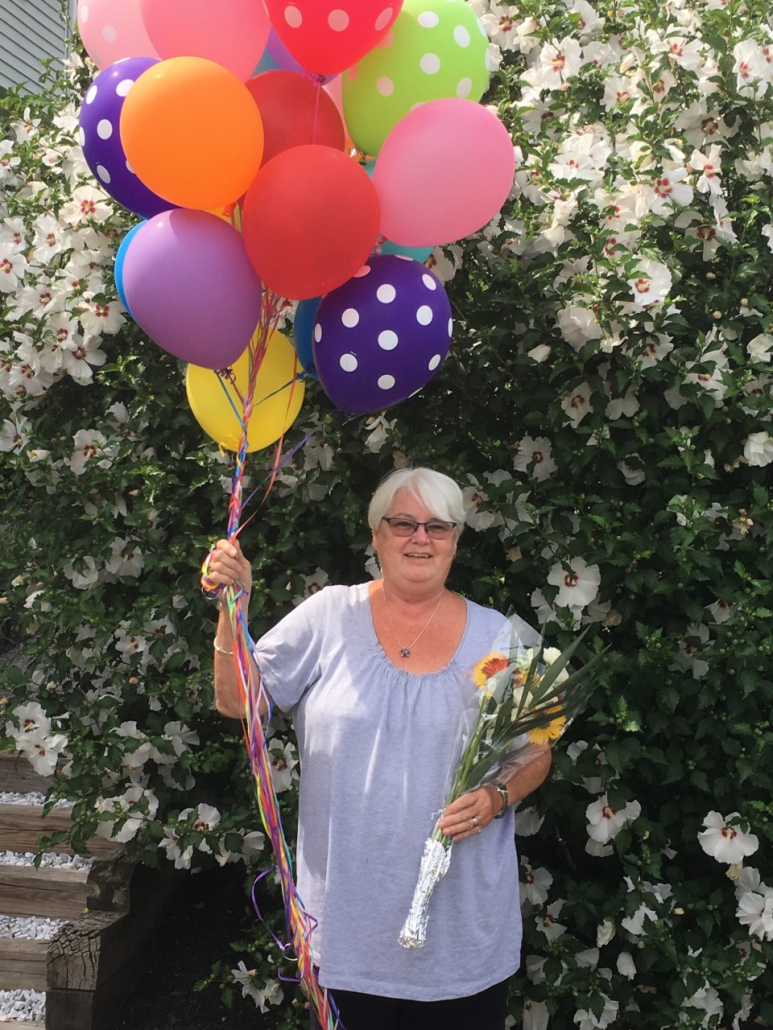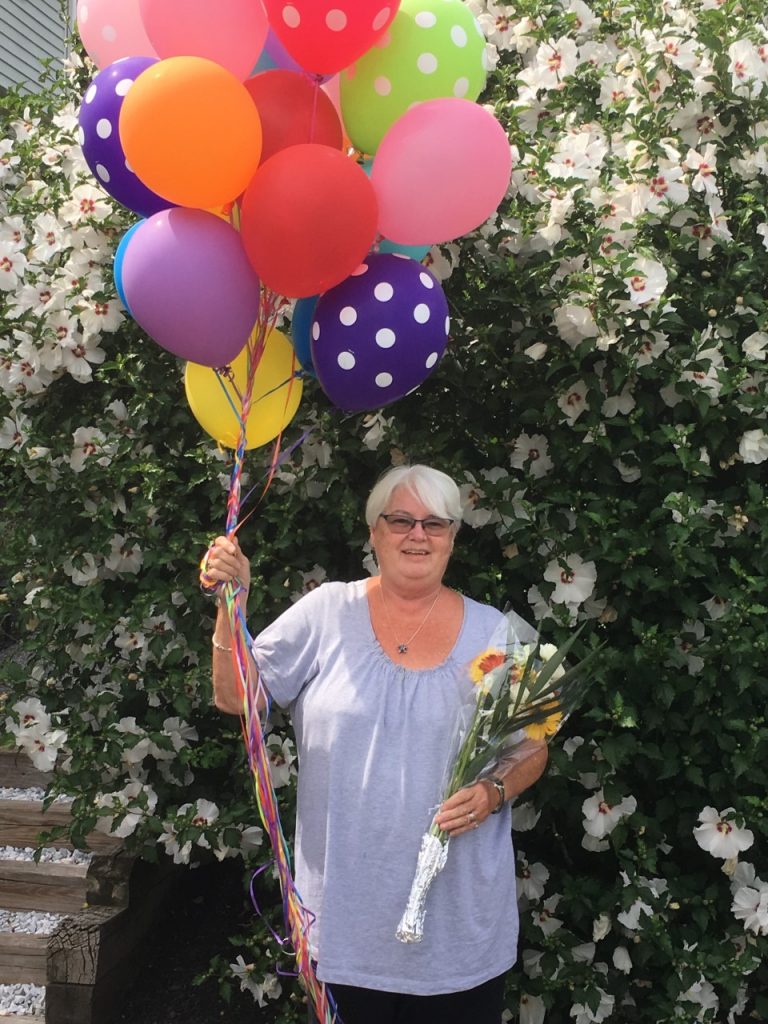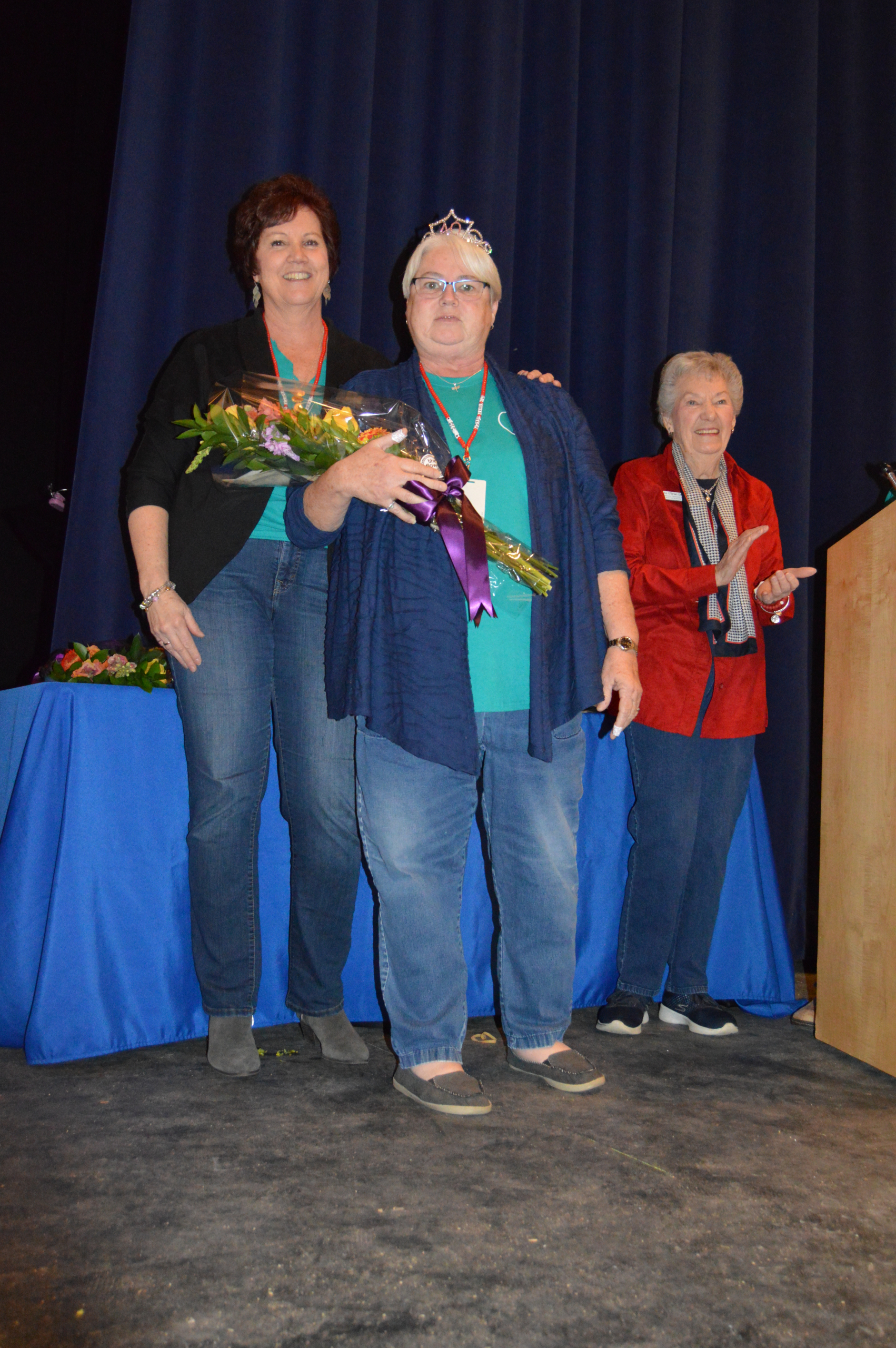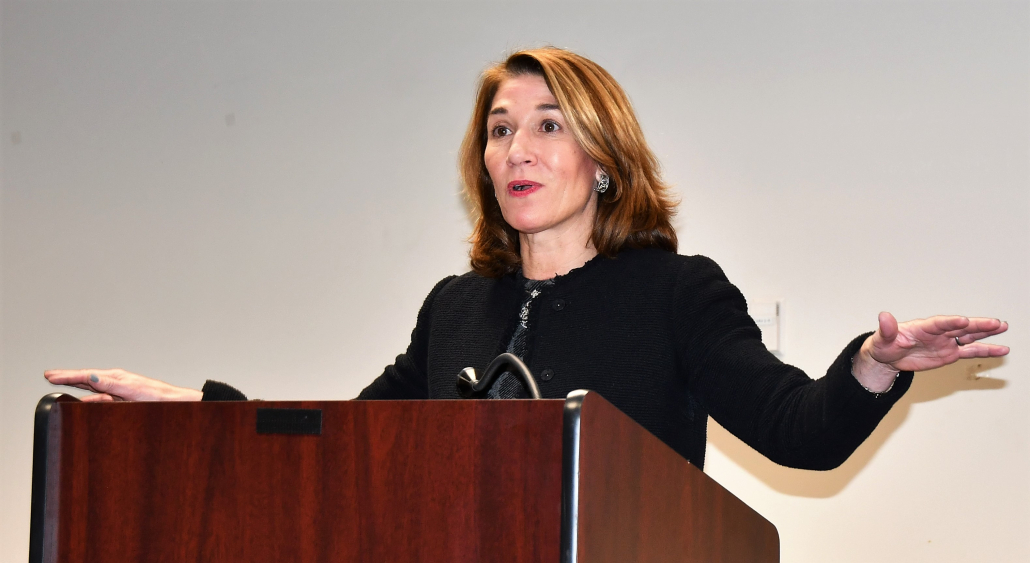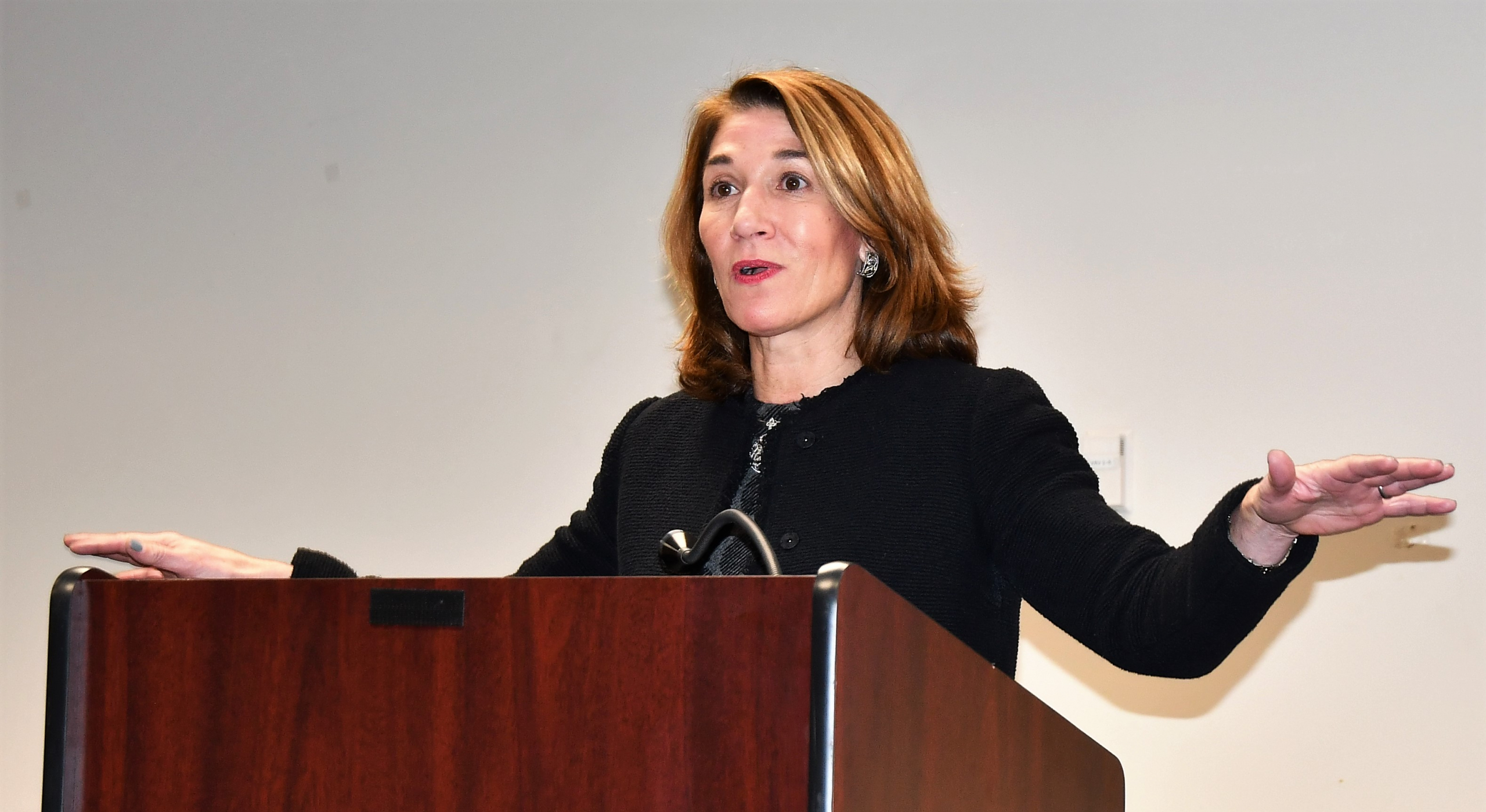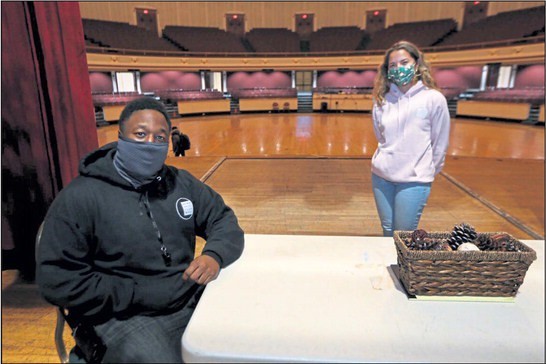
Curtain call for remote learners
With CTI’s help, venue shifts from shows to education Lowell MEMORIAL Auditorium
Lowell Sun 1/10/2021
By Barry Scanlon, Correspondent
https://bit.ly/3oBzltlt
Lowell » During its nearly 100- year run, Lowell Memorial Auditorium has hosted musicians, comedians, actors, boxers, dancers, and much more.
Now the venerable building on East Merrimack Street has added a new chapter to its glorious history: Classroom.
The building is hosting 24 students Monday through Friday thanks to a partnership between Pete Lally, president of the Lowell Management Group, and Community Teamwork, Inc.
“ It’s really nice to have the auditorium being used, especially for something like this in the community where there’s such a need,” Lally said. Lally was approached by Kathleen Plath, CTI’s director of Development and Marketing. Due to the pandemic, CTI was looking for buildings with capacity to help students learn remotely.
“ She said, ‘ Hey, I know you’re not doing many concerts these days,’” Lally said.
Indeed, few industries have been hurt by the pandemic more than the entertainment one. Events booked at the Lowell Memorial Auditorium have been canceled or postponed since last March. The auditorium, which opened in 1922, consists of 2,800 seats for most events and has 100,000 square feet of room.
“ It’s been a busy place for so many things,” Lally said. “ There’s been a number of days it was pretty much just me there.”
Lally jumped at the chance to assist CTI, an organization that does “ so many good things,” he said.
There were some hurdles to clear, mainly getting a license from the Department of Early Education and Care. That process took about six weeks as the auditorium was tested for air quality and the building’s WiFi had to be upgraded.
Auditorium » 6A

CTI health & safety content coordinator Vernon smith, left, and group leader tiffany De Oliveira, both of Lowell, inside Lowell Memorial auditorium which is hosting two-dozen schoolchildren for remote learning.
Julia Malakie photos/ lowell sun
Demetri Rivera-Robinson, 8, of lowell, uses on an online drawing instruction program.
Auditorium
FROM PAGE 1A
A total of 24 students, ages 5-13, have been remote learning at one of Lowell’s most notable buildings since Dec. 19. That number will grow, possibly up to 104, as CTI increases its staffing level. The students are able to use the building from 7 a. m. to 5 p. m., freeing up their parents to work during the day.
CTI is committed to helping low-income people become self sufficient. The organization serves 63 cities and towns in Middlesex and Essex counties.
“ It’s been absolutely fabulous,” said Meghan Siembor, CTI’s director of the Division of Child and Family Services. “ The kids love being there. The staff loves being there. It was a winwin. Pete and his entire team were fabulous to work with. It was a shared mission.
You don’t want buildings unoccupied, es- pecially during the winter.”
CTI looked into other venues, including community centers and churches, before finding the perfect match with Lally, Siembor said.
CTI provides meals to be brought to the students. Breakfast, lunch and afternoon snacks are provided. The auditorium also affords space for the children to stay active when they close their laptops.
The stage has been used for acting purposes, and the auditorium also has space for arts and crafts activities.
Students learn while being socially distanced on the main floor of the building. Meeting spaces on the upper floors are available as well.
“ I think the parents are so grateful,” Siembor said.
The Lowell Memorial Auditorium normally hosts 120- 140 events a year. The Golden Gloves boxing tournament, concerts, dance competitions and recitals, High school graduations. It’s normally a beehive of activity.
Lally, who also operates entertainment buildings in Lexington and Plymouth, said the partnership between his group and CTI will continue through the end of February. If the pandemic continues to wreak havoc with the auditorium’s schedule, students may be allowed to learn there into the spring.
“ It’s refreshing for us to have it used 50 to 60 hours a week,” Lally said.
Karen Frederick, CTI executive director, echoed a similar sentiment: “ The partnership with the Lowell Memorial Auditorium has enabled us to provide services to our families and keep people working in the community, which they would not be able to do without much needed childcare. This is a good example of the community coming together to meet the needs created by this pandemic. We are grateful that LMA Management and the city of Lowell were willing to work with us to think outside the box to come up with this solution.”
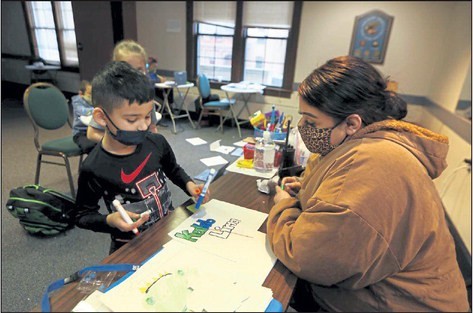
Kaleb Liman, 7, of Lowell, shows his work to group leader Keily Escalante at Lowell Memorial Auditorium.
JULIA MALAK(E / LOWELL SUN
© 2021 lowell sun. Please review new arbitration language here. 1/10/2021
Powered by TECNAVIA
Sunday, 01/10/2021 Page .A01 © 2021 lowell sun. Please review new arbitration language here. 1/10/2021
